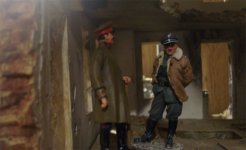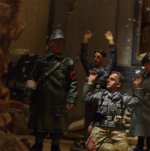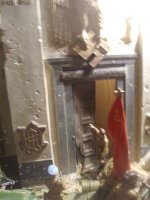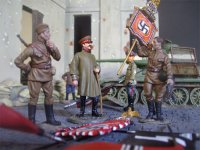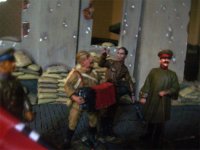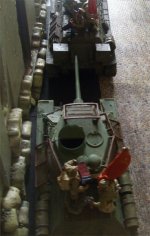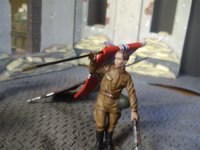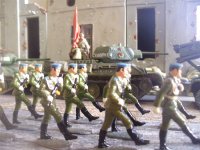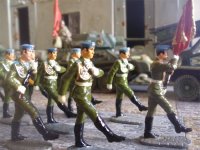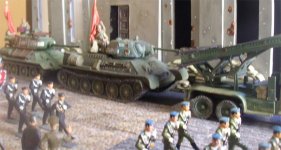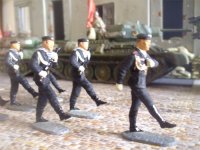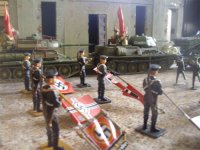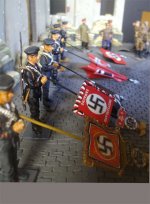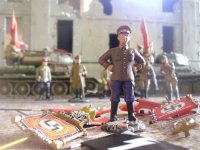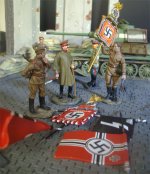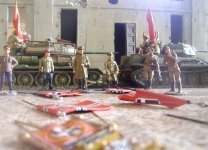redhugh
Master Sergeant
- Joined
- Oct 4, 2007
- Messages
- 1,348
Re: Battle of Berlin part 21
The firing did not die down until the late afternoon. Germans in the cellars shouted that they wanted to negotiate with a senior officer. The young Captain Neustroev told Lieutenant Berest to pretend to be a colonel. He gave him a sheepskin coat to hide his shoulder boards and sent him forth to negotiate. Shortly afterward, Germans began to appear from the basement, dirty and unshaven in their ragged uniforms, with their eyes flickering nervously around and "smiling like obedient dogs." Some three hundred enemy soldiers and officers laid down their weapons. Nearly two hundred had been killed. In the improvised dressing station in the basement lay another five hundred, although many of them had been wounded earlier. The battle for the Reichstag was over.
The firing did not die down until the late afternoon. Germans in the cellars shouted that they wanted to negotiate with a senior officer. The young Captain Neustroev told Lieutenant Berest to pretend to be a colonel. He gave him a sheepskin coat to hide his shoulder boards and sent him forth to negotiate. Shortly afterward, Germans began to appear from the basement, dirty and unshaven in their ragged uniforms, with their eyes flickering nervously around and "smiling like obedient dogs." Some three hundred enemy soldiers and officers laid down their weapons. Nearly two hundred had been killed. In the improvised dressing station in the basement lay another five hundred, although many of them had been wounded earlier. The battle for the Reichstag was over.


